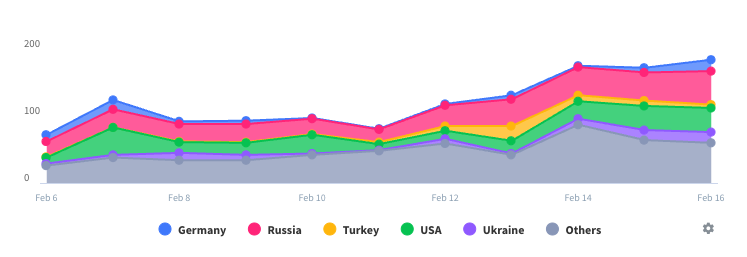Description
AudioNotch is a mobile app that allows you to create and listen to Notched Sound Therapy that has been customized for your particular tinnitus frequency.
Tinnitus is the perception of sound in the absence of any external environmental sound. It affects millions of people worldwide, and usually presents as a persistent ringing in the ears. (4)
Notched Sound Therapy is a tinnitus treatment that can lower the volume of your tinnitus tone. It is created by taking either music or "white noise" and removing the sound energy—"notching it out"—at the same frequency of your tinnitus tone. (2) In some experiments, tinnitus volume was reduced by 75%, 26%, and 20%, respectively. (1,2,3)
FEATURES INCLUDE:
- The ability to match your tinnitus frequency using our tinnitus tuner (free, does not require an account)
- The ability to create Notched Sound Therapy customized for your particular tinnitus frequency (requires paid account)*
- The ability to listen to Notched Sound Therapy (requires paid account)
*Notched White Noise and Notched Natural sounds can be created directly in the mobile app. However, creating Notched Music requires the usage of our companion web application on a computer (access to this is also provided after In-App Purchase of a paid account). Notched Music created via a computer can be listened to on the mobile app.
In order to learn more about the science behind AudioNotch and how it works, read our comprehensive F.A.Q. at https://www.audionotch.com/faq
REFERENCES:
1)
Lugli M, Romani R, Ponzi S, Bacciu S, Parmigiani S (2009) The windowed sound therapy: a new empirical approach for an effective personalized treatment of tinnitus. Int Tinnitus J 15:51-61.
2)
Okamoto H, Stracke H, Stoll W, Pantev C (2010) Listening to tailor-made notched music reduces tinnitus loudness and tinnitus-related auditory cortex activity. Proc Natl Acad Sci U S A 107: 1207-1210.
3)
Teismann, H., Okamoto, H., Pantev, C. (2011). Short and intense tailor-made notched music training against tinnitus: The tinnitus frequency matters. Plos ONE, 6, 1-8.
4)
Heller AJ (2003) Classification and epidemiology of tinnitus. Otolaryngol Clin North Am 36:239–248.
DISCLAIMER: THIS DESCRIPTION DOES NOT CONSTITUTE PROFESSIONAL MEDICAL ADVICE. SPEAK TO YOUR DOCTOR FIRST IF YOU HAVE TINNITUS. NEVER DISREGARD PROFESSIONAL MEDICAL ADVICE OR DELAY SEEKING MEDICAL TREATMENT BECAUSE OF SOMETHING YOU HAVE READ ON OR ACCESSED THROUGH THIS APP.
Hide
Show More...






